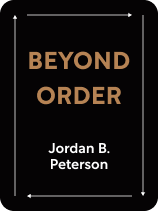

This article is an excerpt from the Shortform book guide to "Beyond Order" by Jordan Peterson. Shortform has the world's best summaries and analyses of books you should be reading.
Like this article? Sign up for a free trial here.
Do you go in too many directions at once? What could you achieve if you focused on depth rather than breadth?
Beyond Order: 12 More Rules for Life is Jordan B. Peterson’s practical guide to navigating the chaos of today’s world and living a life of excellence. It’s a sequel to 12 Rules for Life. Beyond Order Rule 7 is this: Work as hard as you possibly can on at least one thing and see what happens.
Continue reading to learn more about the value of commitment, consistency, and single-mindedness.
Beyond Order: Rule 7
While following your conscience may work wonders, doing so is no use if you aren’t consistent. Consistency, Peterson argues, is a necessary precondition of success. You won’t get anywhere if you don’t commit to something and stick to that path. That’s the background for Beyond Order Rule 7: Work as hard as you possibly can on at least one thing and see what happens.
Peterson offers some practical advice. To become consistent, pick a direction and stay the course single-mindedly. As you go, you’ll need to confront the trials and challenges of that path. According to Peterson, these challenges will test your commitment and show you what you’re made of. When you give yourself no options but to follow through, that pressure will make you strong enough to handle anything.
(Shortform note: Finding deep, consistent focus is a common theme in self-help. In Hyperfocus, for instance, Chris Bailey discusses how managing your attention is the key to success. Bailey suggests sorting your tasks into a four-quadrant matrix—Unnecessary, Distracting, Necessary, and Meaningful—so that you can cut down on unimportant tasks that scatter your attention. This could also help you measure your commitment to your path—for example, you could track the amount of time you spend in each quadrant to see if you’re avoiding the work that needs doing or confronting it head-on, as Peterson advises.)
In fact, Peterson explains, limitations create freedom. There isn’t enough time to become everything you might want to be. But, if you don’t choose any path, you won’t become anything at all. By instead committing to a path at the expense of all others, you guarantee that you’ll become something.
(Shortform note: Even when you do find the right path for you, don’t confuse staying focused with being rigid. As Robert Greene explains in Mastery, we’re all at risk of growing stiff and dogmatic as we grow older. To avoid this, he recommends stretching against the traditional rules and limitations of your path or field (after you’ve first mastered them, of course). Specifically, Greene suggests that techniques such as taking time to be unfocused and practicing free association can help you stay flexible and not fall into a rigid rut that you mistake for your path.)
Related Beyond Order Rules
Beyond Order Rule 7 can be grouped together with three other rules from the book. Each one fits the theme of personal responsibility. Let’s take a quick look at the three related rules:
- Beyond Order Rule 2: Imagine who you could be, and then aim single-mindedly at that.
- Beyond Order Rule 4: Notice that opportunity lurks where responsibility has been abdicated.
- Beyond Order Rule 9: If old memories still upset you, write them down carefully and completely.

———End of Preview———
Like what you just read? Read the rest of the world's best book summary and analysis of Jordan Peterson's "Beyond Order" at Shortform.
Here's what you'll find in our full Beyond Order summary:
- A no-nonsense guide to navigating the chaos of our difficult world
- How and why you should listen to your conscience
- How to show up for life as fully as you can






